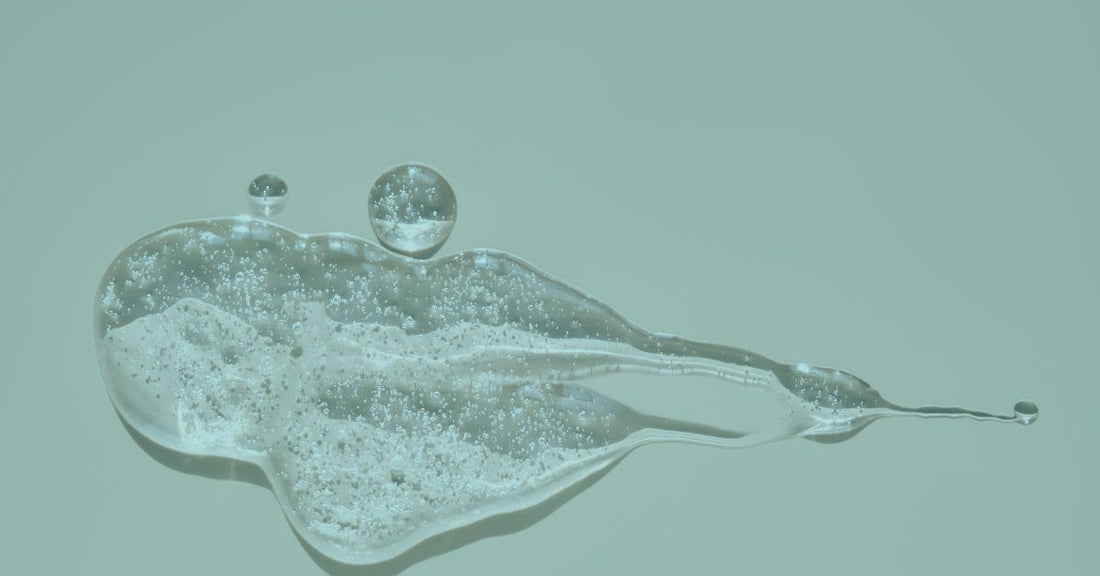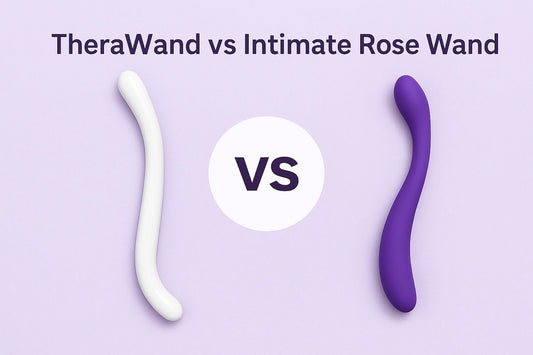Uncomfortable or painful sex caused by vaginal dryness is easily relieved by using a personal lubricant. Lubricants have also been proven to improve sexual arousal, physical intimacy, and sexual pleasure. However, not all lubricants are the same. Some last longer than others and some can increase the risk of vaginal infections.
This article explains the typical causes of vaginal dryness and the difference between water-based and oil-based lubricants so you can decide which one is best for you.
Why Does Vaginal Dryness Happen?
Vaginal dryness, also known as vaginal atrophy, can cause itching and irritation as well as dryness and pain during sex (dyspareunia). Sometimes the vulva (outer genitals) is also impacted by vaginal dryness, causing pain when touched or grazed by underwear. Recurring urinary tract infections (UTIs) and yeast infections can also become more frequent when vaginal dryness occurs.
The most common cause of vaginal atrophy is low estrogen levels. Although it is widely understood that estrogen supports the reproductive system, many don't realize that estrogen affects almost every tissue in the body too.
When it comes to vaginal health, low estrogen levels can minimize the production of natural lubrication, resulting in a dryer vaginal canal. Lowered estrogen levels also reduce blood flow to the vaginal tissues which further contributes to the sense of dryness.
The combined effect of low estrogen and reduced blood flow typically results in a loss of elasticity and plumpness in the vaginal walls. Thinner, more fragile vaginal walls coupled with a lack of natural lubrication means the vaginal skin is more prone to friction and tearing during sex.
Thankfully, this discomfort during sex can be eased by using a personal lubricant and an organically-made vulvar moisturizer containing no harmful ingredients can relieve irritation or soreness on the other genitals.
What Causes Estrogen Levels to Drop?
Natural changes, underlying conditions, certain medications, and some cancer treatments are known to lower estrogen production.
For instance, estrogen levels are low after childbirth and while new mothers breastfeed but production typically increases again once breastfeeding finishes.
Estrogen levels naturally begin to decline at the onset of perimenopause, which typically occurs in the mid-to-late 40s, but can be earlier or later for some. Known as the menopause transition, perimenopause can last 7-12 years, during which time estrogen and progesterone gradually decrease. Vaginal dryness is a common symptom of perimenopause.
Menopause is reached when lowered hormone production has permanently settled and menstruation has not occurred for 12 consecutive months. After menopause, estrogen levels remain low and many postmenopausal women find that a personal lubricant helps them to enjoy fulfilling intercourse well into their elder years.
Having an oophorectomy to remove the ovaries causes estrogen levels to drop quite quickly because the ovaries are no longer present to produce it.
Sjögren's Syndrome, an autoimmune condition that affects the exocrine glands and causes dryness in the eyes, mouth, and other body parts is also believed to impact estrogen levels and contribute to vaginal dryness.
Stress and increased anxiety levels are known to affect the body in several ways, vaginal dryness being one of them. Certain anti-depressants, birth control pills, and allergy medications are also known to contribute to vaginal dryness.
Radiation therapy in the pelvic area and chemotherapy are also known to alter estrogen production and vaginal lubrication.
What Are Personal Lubricants?
Personal lubricants are designed to replace the vagina's natural lubrication when vaginal dryness occurs. Indeed, studies have shown that 70% of women experienced more comfort and sexual satisfaction when using lubes to alleviate discomfort during intercourse.
Applying some personal lubricant to the outer vagina during foreplay will alleviate soreness and discomfort while increasing sexual arousal. Some lubricant on the penis will ease penetration and moisten the vaginal canal for more pleasure during intercourse.
Because personal lubes are used in the delicate vaginal environment, female health experts recommend only using lubes that have a pH compatible with a healthy vaginal pH (3.8-4.5) to avoid infections.
Water-Based vs Oil-Based Lubricant: Which is Better?
There are pros and cons to both water-based and oil-based lubes. Below is an outline to help you decide which lubricant will best benefit you and your partner.
Water-Based Lubricants: Pros and Cons
Water-based lubricants are generally made from safe ingredients that moisten dry or sensitive vaginal skin without causing further irritation. Because they are water-based, these lubes can also hydrate dry skin. Commonly described as slippery without being sticky, water-based lubricants are popular for their comfortable glide and resemblance to the feel of natural vaginal lubrication.
Easy to clean, non-staining, and compatible with most condoms, silicone dilators, and sex toys; water-based lubricants are a top pick for many women experiencing vaginal dryness or discomfort during sex.
The downside of water-based lubricants is that they can dry out quicker than oil-based or silicone-based lubes and may require reapplication during longer sessions.
While several studies have proven the safety of water-based lubes for vaginal use, it's always wise to check the label to ensure it's free of irritating ingredients like glycerin, parabens, or petrochemicals. Although it may seem exciting to use a water-based lubricant with added fragrances or flavors it's wiser to avoid these too. Synthetic ingredients, additives, and aromas can disrupt the vaginal pH and contribute to the onset of UTIs or yeast infections.
Oil-Based Lubricants: Pros and Cons
Oil-based lubricants are typically thicker than water-based lubes, are known to last longer, and can leave the skin feeling temporarily moisturized. They are ideal for anal sex and body massage given their smooth and lasting texture.
The safest and least irritating oil-based lubricants are made with plant-derived oils such as coconut, olive, jojoba, or almond oil. However, many brands still use synthetic oils or a blend of both, so it's always wise to check the label before purchasing.
The main drawback to oil-based lubricants is that oil alters the vaginal pH, which can result in vaginal infections. For this reason, oil-based lubes are rarely recommended for vaginal sex.
Oil-based lubricants are also known to stain bed sheets, are harder to clean, and damage latex condoms as well as the outer coating of silicone pelvic tools or sex toys. Another downside is that the oil base in these lubes can sometimes clog pores and cause skin irritation or ingrown hairs around the genital area.
What About Silicone-Based Lubricants?
A silicone-based lubricant is considered a safer alternative to oil-based lubricants if a water-based lube does not last long enough or provide adequate comfort during intercourse. Although water-based lubes are considered the most versatile in that they can safely be used for foreplay, masturbation, vaginal, and anal sex, as well as with latex condoms some women may require a longer-lasting lube.
Silicone-based lubes are long-lasting, water-resistant, and ultra-slippery for more pleasure and glide. To prevent vaginal skin irritation and pH imbalances, it's important to choose a silicone lubricant that is hypoallergenic and contains no parabens, glycerin, flavors, or fragrances.
The only disadvantage to silicone lubricants is that they damage the silicone coating on sex toys or pelvic tools.
How to Identify a Safe Personal Lubricant from the Label
- The pH of a vaginal lubricant should be compatible with a healthy vaginal pH which ranges from 3.8 to 4.5
- Ingredients should be free of parabens, glycerin, and petrochemicals
- Avoid lubricants that include flavors, fragrances, or features that promise a heating, cooling, or tingling sensation
If you notice any skin reactions or unusual symptoms after trying a new personal lubricant, stop using it to see if your symptoms ease. If they do, read the label to identify harmful ingredients and try a different lubricant that adheres to the safety guidelines outlined above.
Conclusion
Vaginal dryness can occur for several reasons in a woman's lifetime, often causing daily irritation and pain during sex. The good news is that discomfort and friction during sex can be relieved with a personal lubricant and vulvar irritation can be eased with an organically-made vulvar moisturizer.
That said, not all personal lubricants are the same. While oil-based lubes might last longer, for instance, they are not as safe for the vaginal microbiome as water-based lube made with safe ingredients. Before purchasing, our guidelines above can help you determine which personal lubricant best suits you and your partner's needs.
References
Women's Health Concern - Vaginal Dryness - https://www.womens-health-concern.org/help-and-advice/factsheets/vaginal-dryness/
La Leche League International - Breastfeeding and Sex - https://llli.org/breastfeeding-info/breastfeeding-and-sex/
The North American Menopause Society. Changes in the Vagina and Vulva - https://www.menopause.org/for-women/sexual-health-menopause-online/changes-at-midlife/changes-in-the-vagina-and-vulva
Health - 5 Medications That Can Lead to Vaginal Dryness - https://www.health.com/condition/cold/cold-medicine-cause-vaginal-dryness
American Cancer Society - How Radiation Therapy Can Affect the Sex Life of Females with Cancer - https://www.cancer.org/cancer/managing-cancer/side-effects/fertility-and-sexual-side-effects/sexuality-for-women-with-cancer/pelvic-radiation.html
National Library of Medicine - The Effect of Hysterectomy on Women's Sexual Function: a Narrative Review - https://www.ncbi.nlm.nih.gov/pmc/articles/PMC4720466/
Science Daily - Studies About Why Men and Women Use Lubricants During Sex - https://www.sciencedaily.com/releases/2009/11/091109090431.htm
UCI Health - Water-based lubricants are safe for vaginal use, a UCI study shows - https://www.ucihealth.org/news/2023/06/water-based-lubricants



